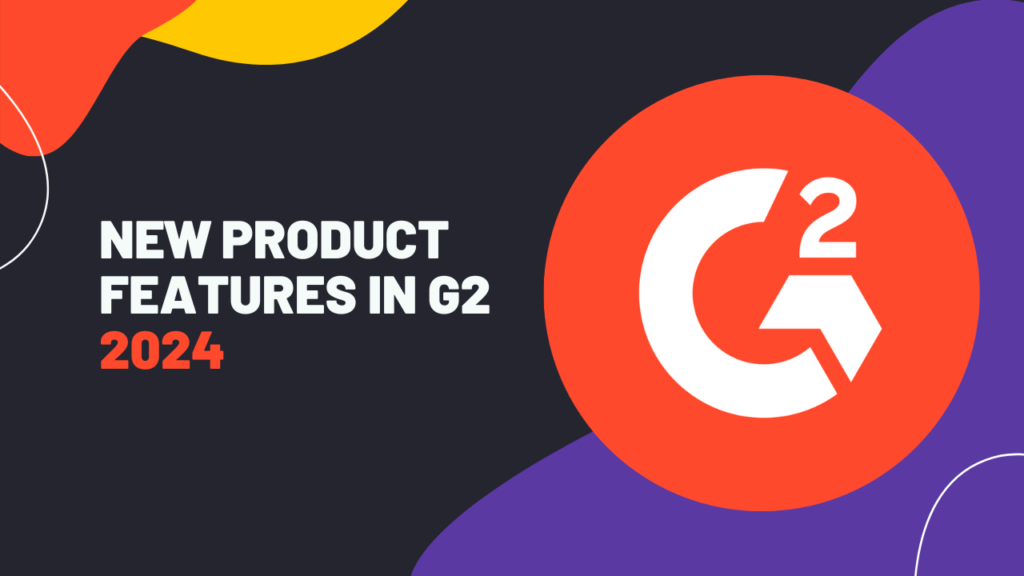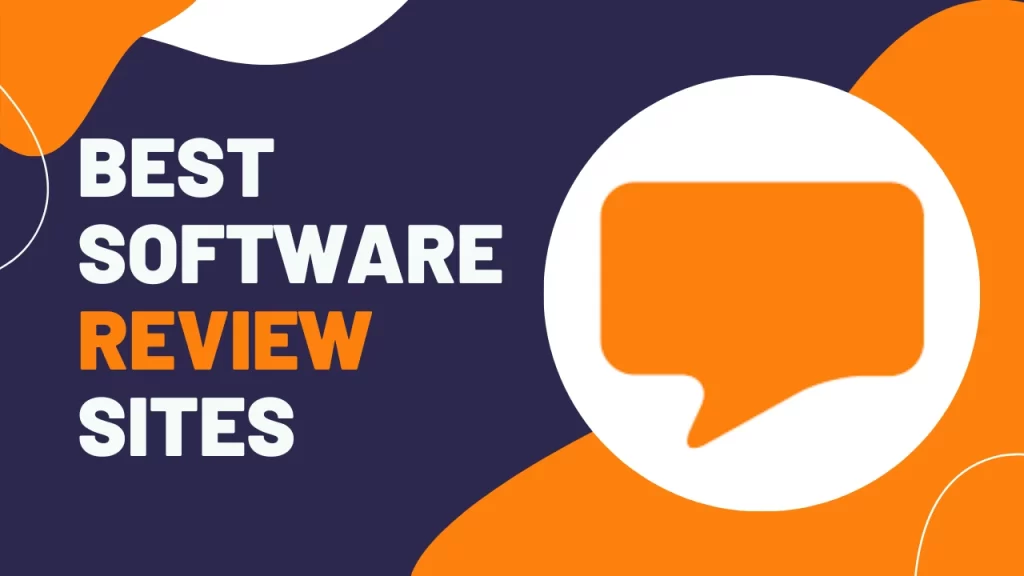In the grind for growth in difficult macroeconomic times, effective lead generation tools are not just nice to have; they’re critical.
In this article, I’ve curated my top picks for the best lead generation software to suit a range of lead generation strategies.
It will help shape your marketing and sales strategy and support your lead acquisition efforts in 2024. Dive into a concise selection of tools designed to optimize your lead generation.
Key Takeaways
- Rise of Revenue Operations (RevOps): Integrating marketing, sales, and customer success under RevOps could increase the demand for lead generation tools across the customer lifecycle.
- Decline in Traditional B2B Demand Generation Playbook: Traditional tactics like eBook promotions and nurturing emails are becoming less effective, necessitating a shift towards emotional brand connection and comprehensive revenue focus, including retention and expansion.
- Advancements in AI and Machine Learning: These technologies have enhanced lead generation tools, particularly predictive analytics and automated personalization.
- Importance of Analytics and Attribution Tools: These tools are vital for evaluating marketing strategies and understanding the customer journey, helping businesses allocate resources more effectively and make data-driven decisions when evaluating lead generation strategies.
How Lead Generation Tools Are Evolving
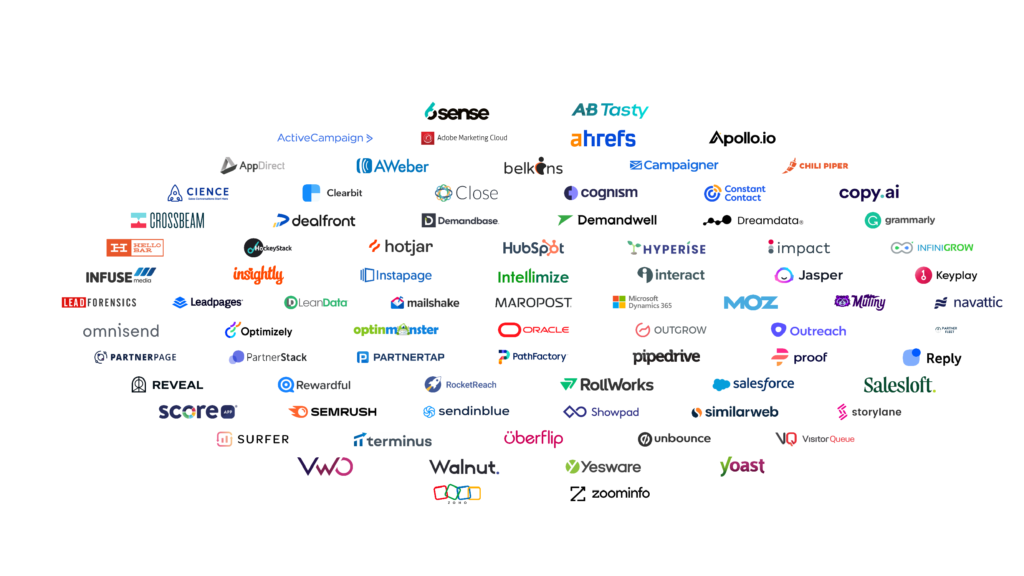
In 2023, the advancements in lead generation tools reflect the dynamic landscape of digital marketing and sales.
The most notable evolution was, of course, generative Artificial Intelligence (AI) with OpenAI’s ChatGPT breakthrough technology, which has inspired and enabled many of the best lead generation tools to leverage AI. There’s a gold rush into generative AI tools, many of which have a lead generation use case, from sales development to content marketing.
Beyond AI, a prominent enterprise SaaS Marketing consultant, Dave Kellogg, noted the trend towards unifying operations functions in businesses, particularly in combining marketing, sales, and customer success operations under a single umbrella known as “Revenue Operations” or “RevOps”. This unified approach could lead to increased demand for lead generation tools that help throughout the customer lifecycle, from initial engagement through to retention and expansion
Another key development is the increased use of chatbots for real-time lead capturing and engagement, providing a more interactive and responsive user experience. Additionally, the incorporation of advanced data analytics and visualization tools has become more prevalent, enabling businesses to gain deeper insights into lead behavior and campaign performance.
Looking Ahead in 2024
So what’s in store for lead gen tools in 2024?
Jon Miller, founder of two popular lead gen tools, Marketo and Engagio, said we’ll see the traditional B2B demand generation playbook, focused on tactics like eBook promotions and nurturing emails, decline in effectiveness due to buyer desensitization.
To adapt, sales and marketing teams will need to evolve their approach to invest more in emotional brand connection, using intent data and AI for timing, and a broader focus on all revenue aspects, including retention and expansion, along with a deeper sales alignment.
Let’s dive into how the right lead generation tools can move the needle in 2024.
Building Your Lead Generation Tech Stack

Assembling the right infrastructure for effective lead generation is quite a challenging task. It requires:
- Understanding your target audience
- Creating buyer personas
- Utilizing lead magnets
- Leveraging multiple channels, including social platforms, email marketing, ads, and lead generation funnels.
The goal is simple: attract high-quality leads and transition them smoothly through the sales and marketing funnel.
Identifying Prospects with Website Visitor Tracking Software
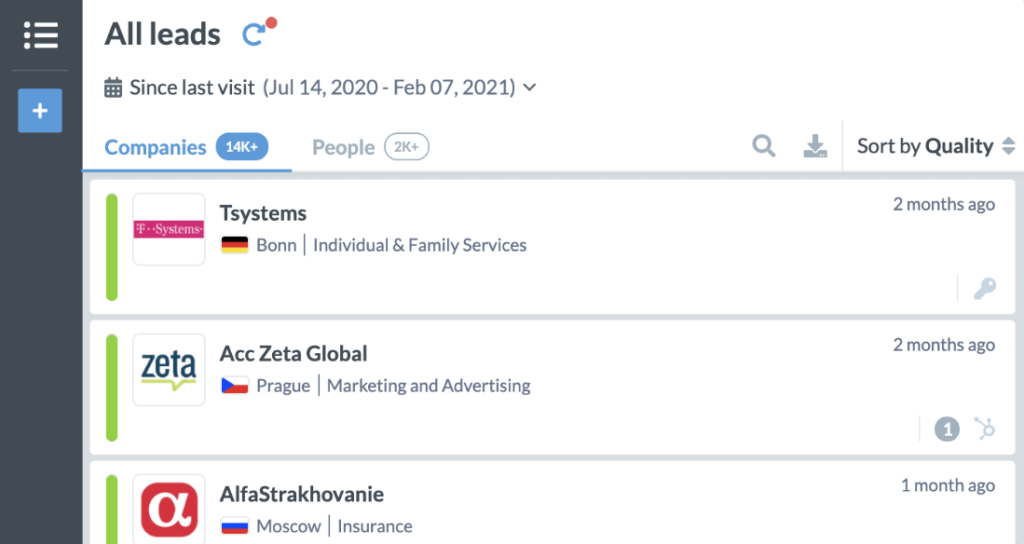
If you have substantial traffic to your website, a savvy initial move in assembling an effective lead generation stack is to identify your prospects. And what better way to do this than with website visitor tracking software?
These solutions provide a treasure trove of data about website visitors, offering real-time insights and reports on website traffic, and helping businesses capture leads by identifying potential sales leads through what’s arguably the best lead generation tool, your company website.
Visitor tracking software operates by utilizing a ‘reverse IP lookup’ to identify corporate website visitors and associating their IP address with a company or organization.
Beyond identification, it monitors website user activity to collect valuable lead generation and sales intelligence data, which can be used by the sales team.
Top visitor tracking tools include:
Analytics & Attribution Tools for B2B Lead Generation
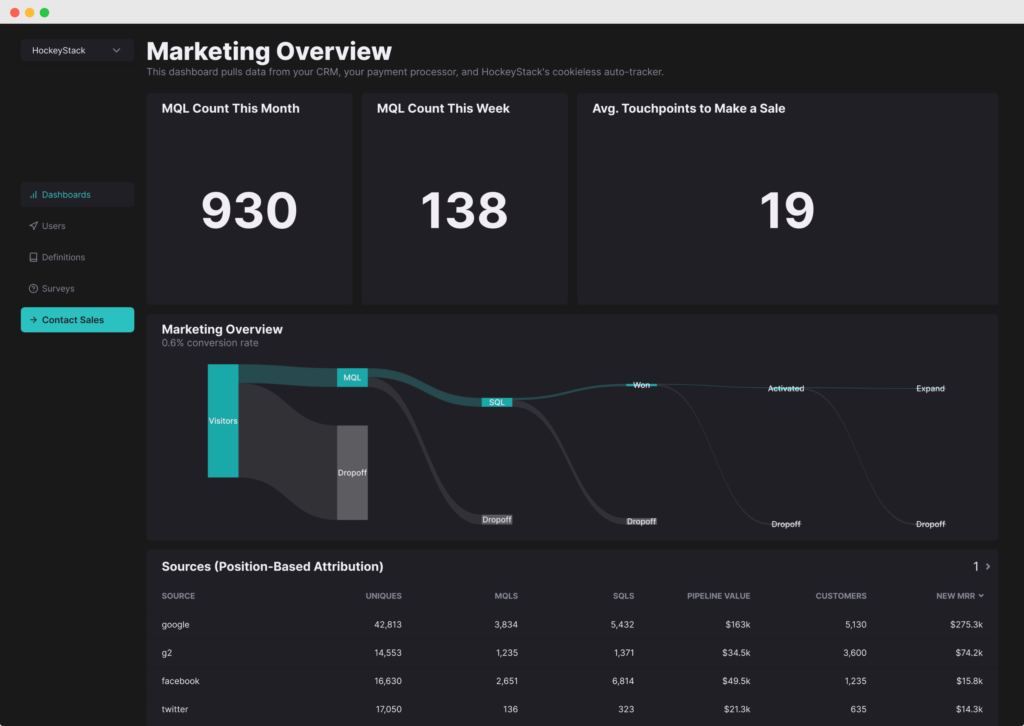
Go-to-Market (GTM) analytics and attribution is arguably the hardest part about B2B lead generation today.
That’s why the emerging category of tools for marketing analytics and attribution in B2B is essential for businesses to evaluate the effectiveness of their marketing strategies and understand the customer journey.
These tools provide insights into how different marketing channels contribute to sales and customer acquisition, enabling businesses to optimize their marketing spend and strategies.
They track and analyze all the data from various touchpoints, helping to attribute conversions and revenue to specific marketing efforts.
This allows for a more data-driven approach to marketing, ensuring resources are allocated to the most effective channels and strategies for reaching target audiences and driving business growth.
Top Go-to-Market (GTM) analytics and attribution tools include:
Generate More Qualified Leads With Interactive Demo Software
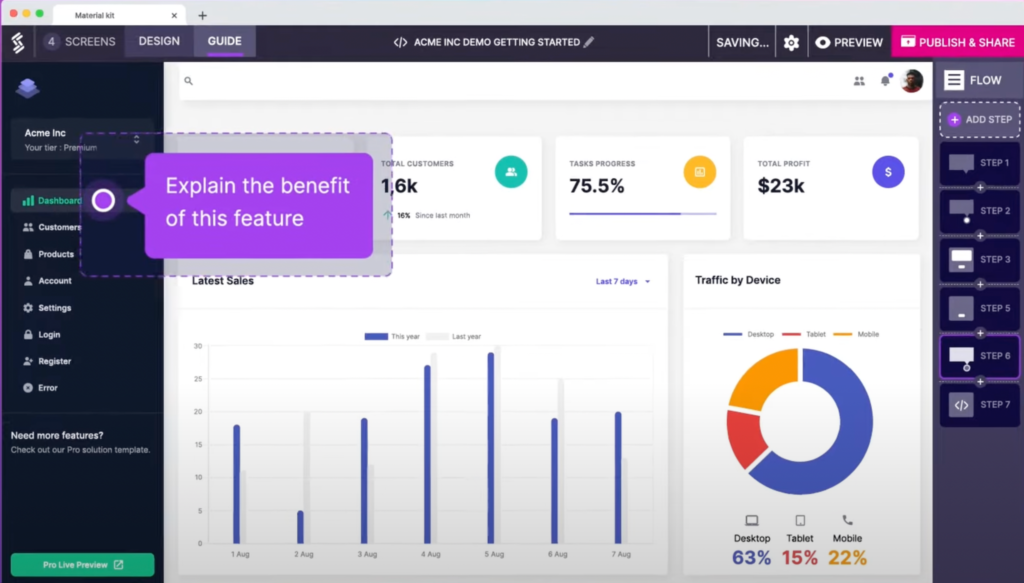
Interactive Product Demo software is a category of B2B lead generation tool designed to provide a virtual, hands-on experience of a software product.
This software allows prospects to engage with a product in an immersive, interactive environment, helping them understand its features and benefits more effectively.
It’s particularly useful in demonstrating complex products, offering a more engaging and detailed exploration than traditional images or videos, and aligns with today’s buying process in which the buyer wants to self-educated on whether a solution can solve their pain points.
By delivering an interactive experience, this software can significantly boost user engagement, leading to higher interest levels and potentially increasing conversion rates.
Top Interactive Product Demo software include:
Create Content More Efficiently With AI Writing
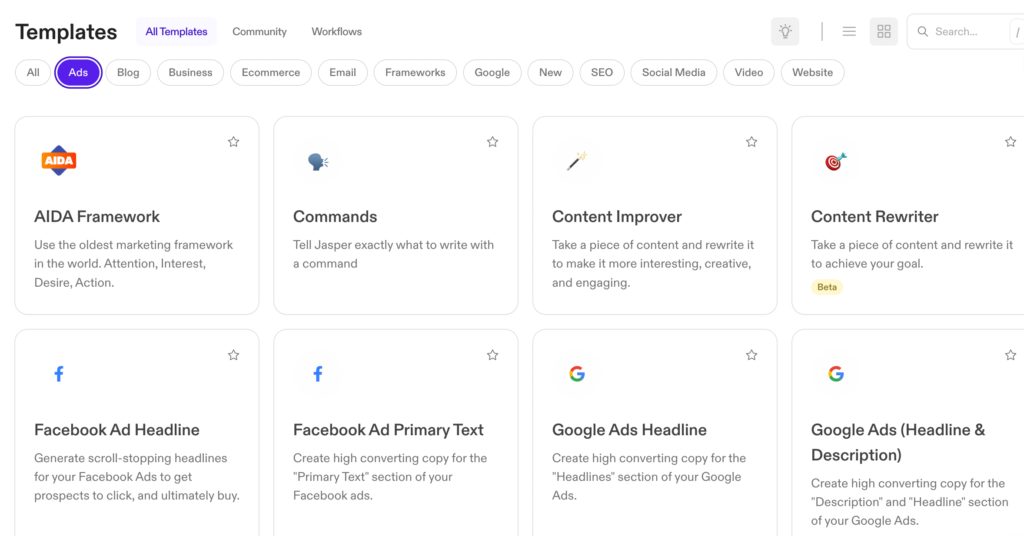
AI writing tools, emerging as a new form of lead generation software, utilize artificial intelligence to aid in content marketing.
These tools use machine learning to understand language patterns, assisting in crafting relevant and coherent text to create content for various purposes like thought leadership and email drafts.
By automating parts of the content creation process, these tools help businesses streamline their marketing efforts, potentially improving lead engagement without significantly enhancing the creativity or quality of content.
Top AI writing tools include:
Align Sales and Marketing Teams With Better Lead Handoffs
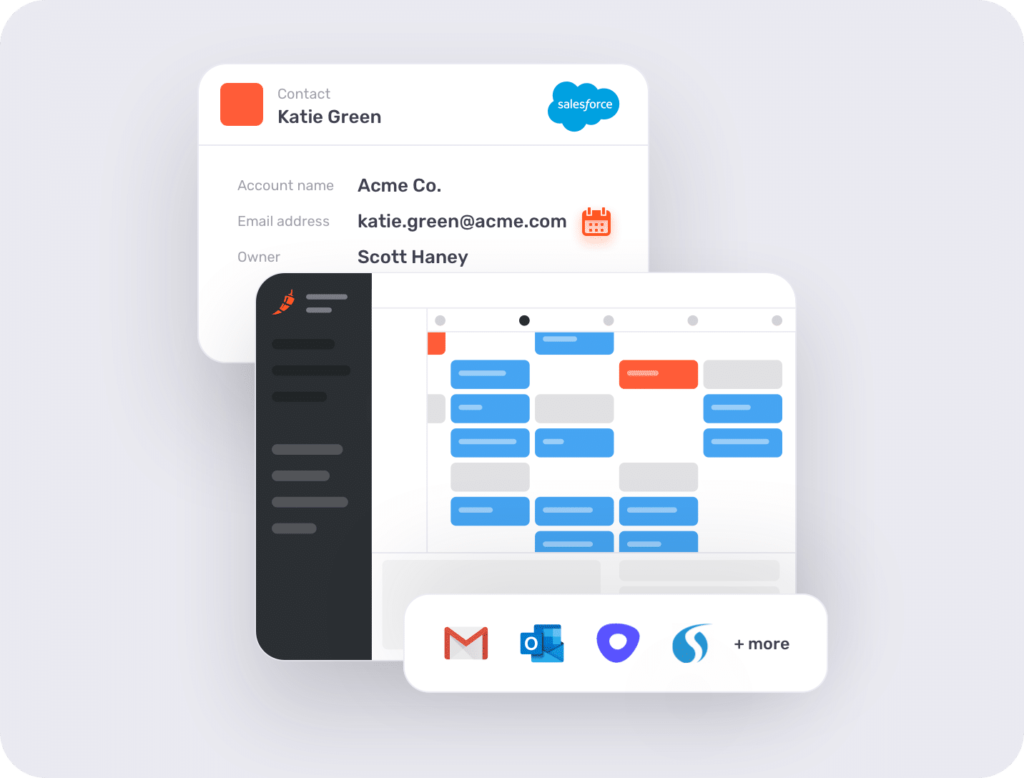
Lead-to-Account Matching and Routing Software is a critical tool for B2B sales and marketing teams, designed to enhance the efficiency of the lead management process, particularly with qualified leads.
This software automatically matches incoming leads to the appropriate accounts in the CRM system, ensuring that leads are accurately and quickly routed to the right sales representatives on your sales team.
This process not only streamlines lead assignment but also helps maintain data integrity and improves response times to potential customers.
By ensuring a well-organized and prompt follow-up, this software plays a key role in maximizing the chances of your sales team converting leads into successful sales.
Top-rated Lead-to-Account Matching and Routing Software include:
Generate Leads Through Affiliates & Referrals
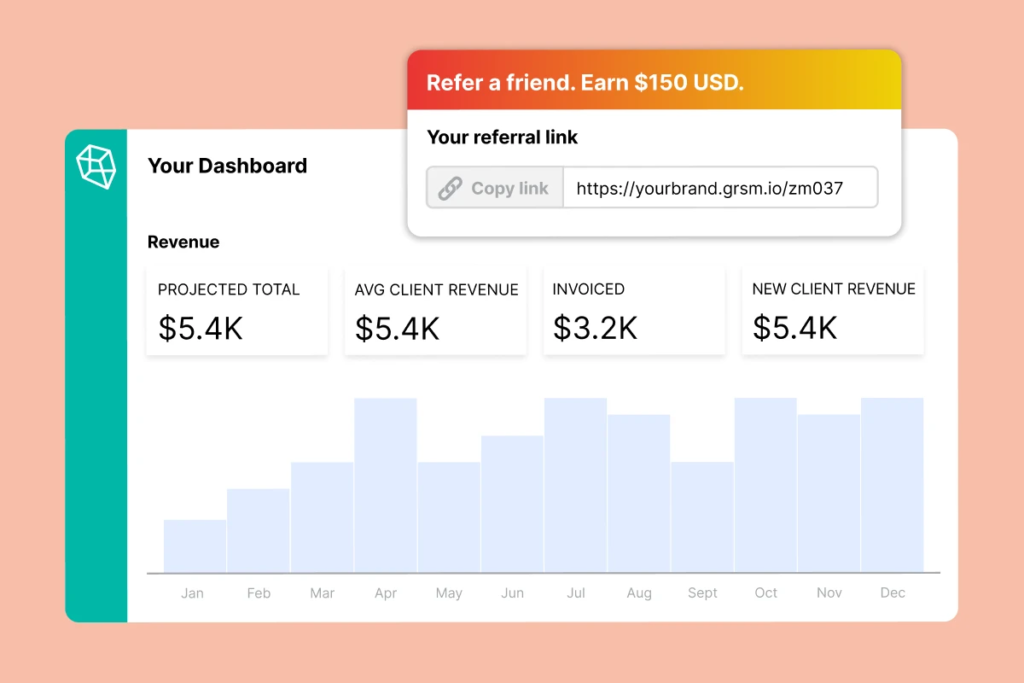
Affiliate marketing and referral software in a B2B lead generation context serve as powerful tools to expand market reach and extend lead acquisition.
These programs incentivize current customers or partners to refer new leads, effectively leveraging their networks for business growth.
By offering rewards for successful referrals, such software motivates affiliates to actively promote products or services.
This not only increases lead volume but also tends to bring in higher-quality leads, as they come from trusted sources.
The software automates tracking and management of referrals and commissions, making it a cost-effective strategy for lead generation and customer acquisition.
Top-rated Affiliate Marketing and Referral software include:
Mapping Accounts To Get Sales Leads Through Co-Selling & Marketing
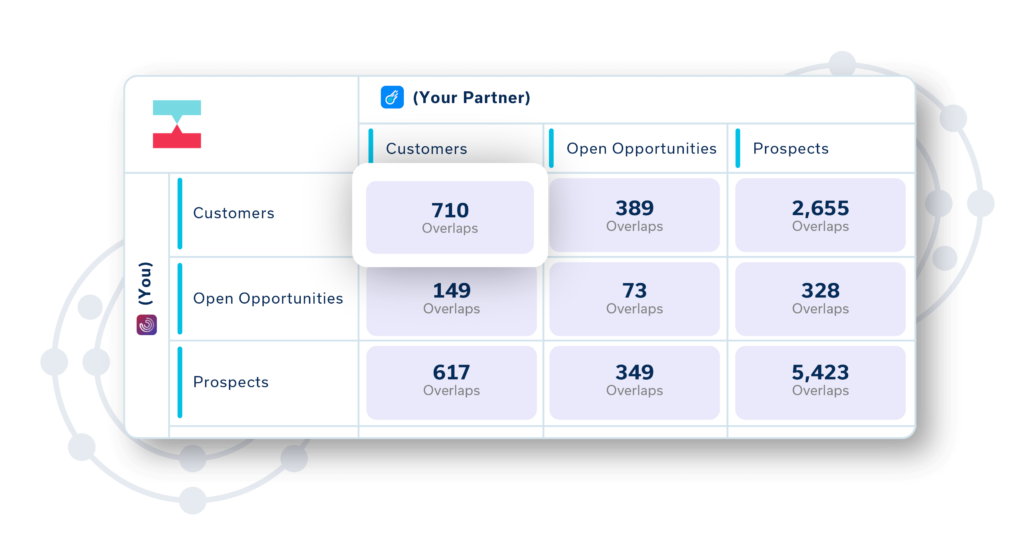
Account Mapping as a B2B lead generation tool, when done in collaboration with partners, involves a strategic comparison of customer pipelines, such as prospects, opportunities, and existing customers, between the businesses.
By cross-referencing or “mapping” these lists against each other, businesses can uncover a wealth of new opportunities for your sales team to include in their sales process.
This approach allows companies to identify potential sales leads that may not have been apparent within their individual datasets, thereby expanding their reach and enhancing the effectiveness of their joint marketing and sales efforts.
Account Mapping software typical has key features to securely compare and map customer and prospect data between partners, identify overlapping accounts and opportunities, and provide insights into potential collaboration areas.
These tools often come with robust data privacy controls, ensuring that sensitive information is shared selectively and securely.
Top-rated Account Mapping Software include:
An Unexpected Lead Generation Tool: App Marketplace Software
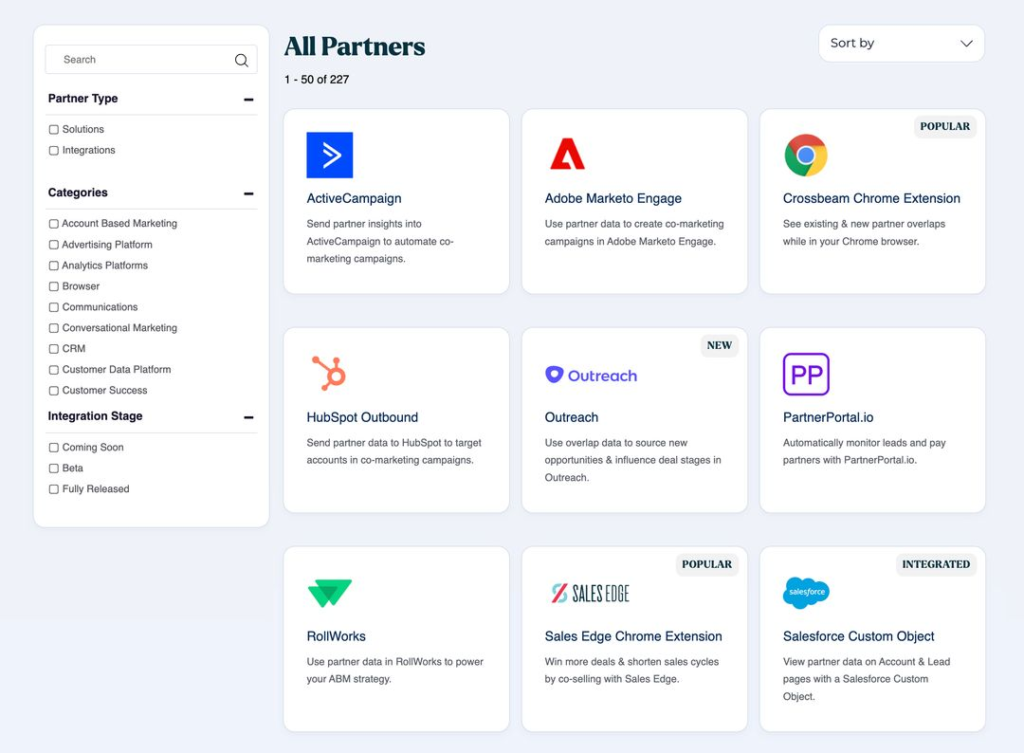
Gone are the days when only the larges enterprises have their own marketplaces.
For B2B software companies, the proliferation of software has led to a need to integrate many lead generation tools together.
Vendors can highlight their integration partners in an app marketplace, and can make one easily with one of the emerging vendors offering app marketplace software.
App marketplace software can aid in B2B lead generation for software companies by helping more users discover related solutions and illustrating the extensiblility of their platform.
Additionally, the integration and analytics features offered by these marketplaces enable developers to understand user behavior and preferences better, allowing for more targeted marketing efforts and the optimization of app features to meet user needs more effectively.
Top-rated App Marketplace Software include:
Enhancing Outreach with Email Marketing Tools
While email marketing isn’t a novel concept, its significance in outreach remains crucial.
Email marketing has become an essential component of any lead generation tech stack.
Email software facilitates personalized communication by automating marketing campaigns and utilizing subscribers’ data to deliver relevant offers and tailored content.
The use of this software for business outreach provides the ability to:
- Segment customers
- Deliver personalized content
- Enhance sales
- Foster customer relationships
- Target specific audiences to accomplish business objectives
For all industries
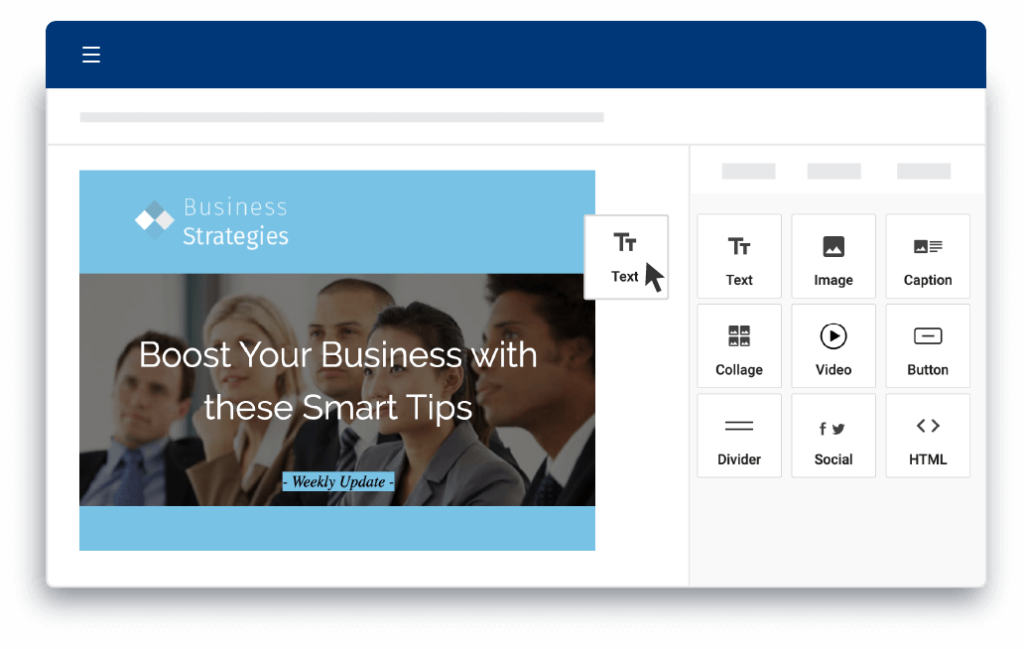
General email marketing software are designed to cater to a broad range of businesses, from small startups to large enterprises.
These tools typically offer features like customizable email templates, list segmentation, and basic analytics to track open rates and click-through rates.
They are ideal for businesses looking to engage with their audience through regular newsletters, promotional emails, or updates.
The simplicity and versatility of these tools make them suitable for companies not requiring advanced functionalities but still wanting to maintain consistent communication with their customers.
Top-rated email marketing tools include:
For eCommerce
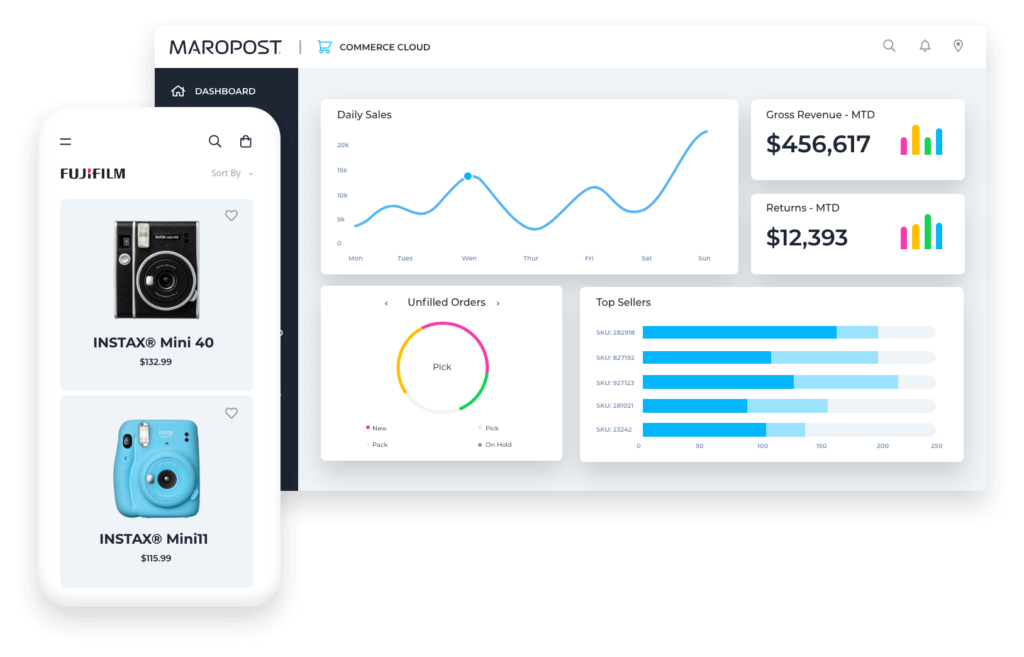
Email marketing software tailored for eCommerce is specifically designed to integrate with online store platforms and leverage customer shopping behavior.
These tools offer advanced features like automated abandoned cart emails, personalized product recommendations, and targeted promotions based on past purchase history.
They help eCommerce businesses in increasing sales by effectively nurturing leads and building loyalty with existing customers.
Top-rated email tools for eCommerce include:
Nurturing Leads with Marketing Automation Platforms
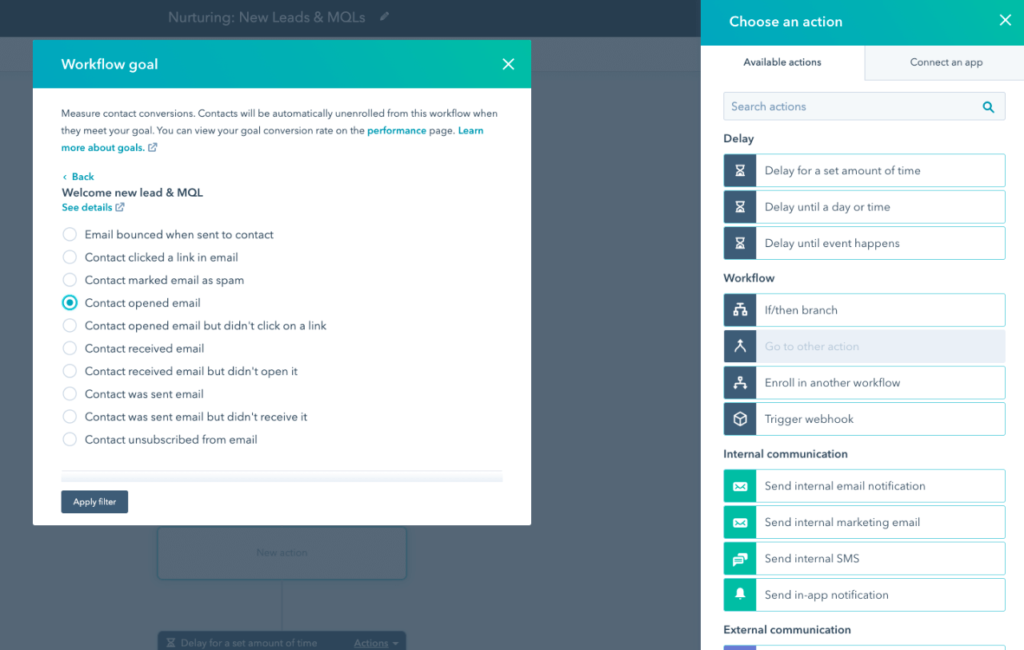
After getting cold leads, the next step is to nurture them into warm leads for the sales department. Marketing automation platforms can help you do just that.
This software typically includes advanced segmentation, lead scoring, CRM integration, and detailed analytics, and is often packaged as a marketing suite.
It’s particularly beneficial for businesses with complex sales cycles, as it helps in nurturing leads through tailored content and communications, ultimately leading to higher conversion rates.
These platforms can:
- Distribute personalized content, including personalized social media posts and ads tailored to customer behavior and interests
- Personalize email marketing
- Improve customer experiences
- Enhance customer segmentation
Top platforms for lead nurturing include:
Sales engagement software
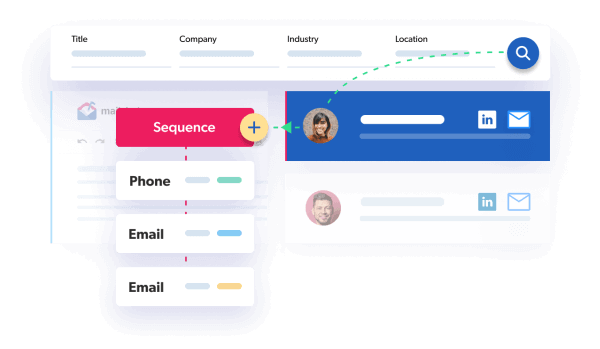
Outbound email tools for sales outreach are specialized software designed to facilitate direct communication with potential leads and customers to get more sales leads.
These tools are equipped with features like email sequence automation, personalization at scale, and detailed tracking of email engagements such as opens, clicks, and replies to engage prospects.
They are essential for sales teams in the sales process for conducting cold emailing campaigns, as they allow sales reps to efficiently manage of large volumes of emails while maintaining a personalized touch.
Additionally, these tools often integrate with CRM systems and provide analytics to optimize outreach strategies, enhancing the effectiveness of sales campaigns and helping to identify the most promising sales leads for follow-up.
Top sales engagement software for outbound email include:
Many of the best lead generation tools are in the email category, so it’s worth taking the time to find the right one to solve your pain points.
Streamlining Engagement with CRM Platforms
Once the prospects have been identified and outreach has been bolstered, the next step is to optimize engagement.
This is where Customer Relationship Management (CRM) platforms come into play as a a foundational lead generation and lead management tool.
CRM platforms have the capability to integrate customer data into a centralized platform, enabling sales teams to effectively manage, analyze, and predict customer behavior, as well as manage their sales activities.
As with email tools, there are many CRMs on the market.
In simplistic terms, there are three groups of CRMs: general CRMs, CRMs for startups and small businesses, and CRMs for enterprises.
Here’s what you need to know about each:
General Customer Relationship Management (CRM)
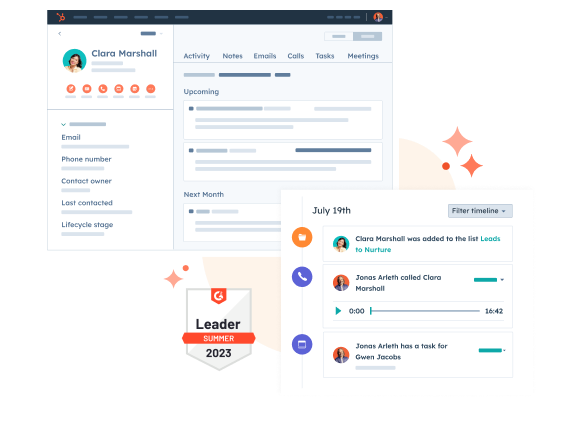
General Customer Relationship Management (CRM) tools are versatile software solutions designed to cater to a broad range of businesses, regardless of their size or industry.
These tools primarily focus on managing customer data, tracking interactions, and automating sales and marketing processes.
They offer essential functionalities like contact and lead management, sales pipeline visualization, and basic reporting and analytics.
General CRMs are highly adaptable, enabling businesses to enhance customer engagement, streamline their sales processes, and improve customer retention through better understanding and management of customer relationships.
Top CRMs include:
CRMs for startups and small businesses
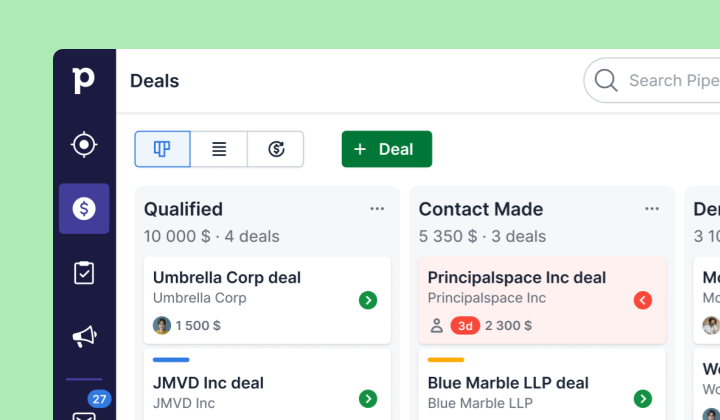
CRMs designed for startups and SMBs emphasize simplicity, affordability, and ease of use, while still providing the core functionalities necessary for effective customer management.
These CRMs often offer streamlined interfaces, basic automation tools, and integration with common small business tools (like email services and social media platforms).
The focus is on user-friendly designs that require minimal training, enabling small teams to quickly leverage the CRM for sales tracking, customer communication, and simple analytics.
Top CRMs for startups and small businesses include:
CRMs for Enterprises
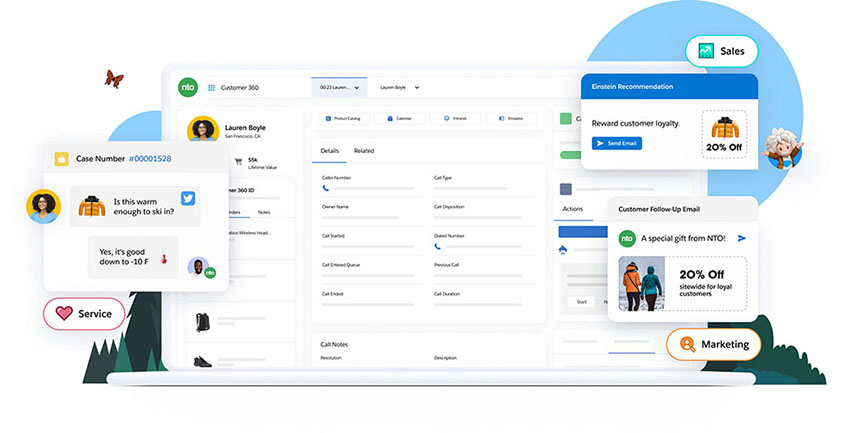
Enterprise-grade CRM systems are comprehensive, highly customizable, and equipped to handle the complex needs of large organizations.
These CRMs offer advanced features such as detailed customer segmentation, extensive sales and marketing automation, sophisticated analytics, and integration capabilities with a wide range of enterprise software.
They are built to manage large volumes of data, support extensive user bases, and provide robust security features.
Enterprises often require CRMs that can be deeply integrated into their existing IT infrastructure and tailored to specific industry needs or business processes.
Top CRMs for enterprises include:
By centralizing the storage of customer data in a customer relationship management tool, businesses gain valuable insights into their sales pipelines and customer behavior.
This helps improve the sales process and ultimately contributes to a healthy sales pipeline.
Maximizing Conversions with Landing Page Builders
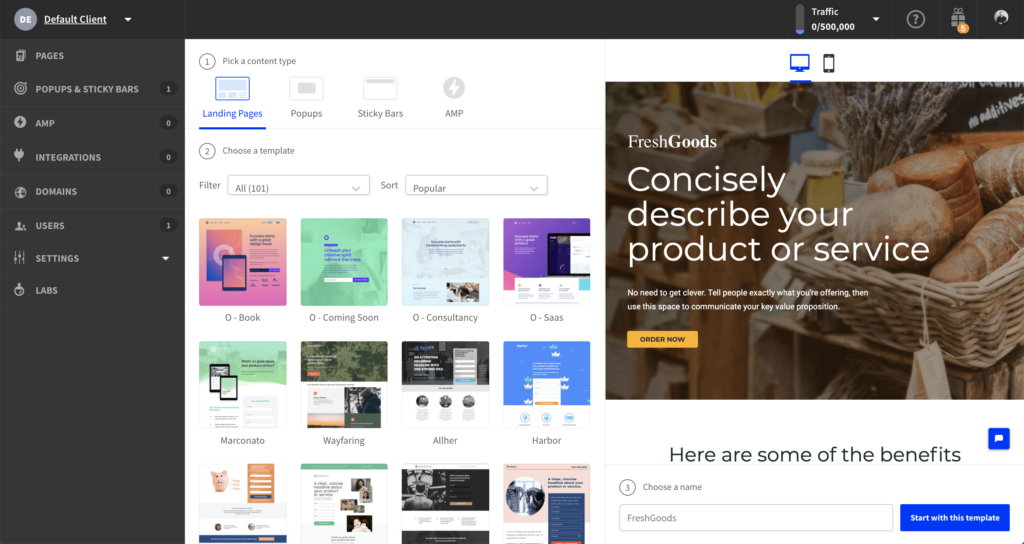
Landing page software simplifies the creation of high-converting landing pages with user-friendly drag-and-drop interfaces, enables A/B testing to optimize for better engagement and conversions, and provides integration options with various marketing tools to streamline the lead generation.
When choosing a landing page builder, it is crucial to consider the following features:
- Professional, optimized templates
- Integrated A/B testing
- Drag-and-drop builder
These features will help you create effective and high-converting landing pages to get more leads.
Top Landing Page software include:
Improving Lead Capture with Form and Pop-up Creators
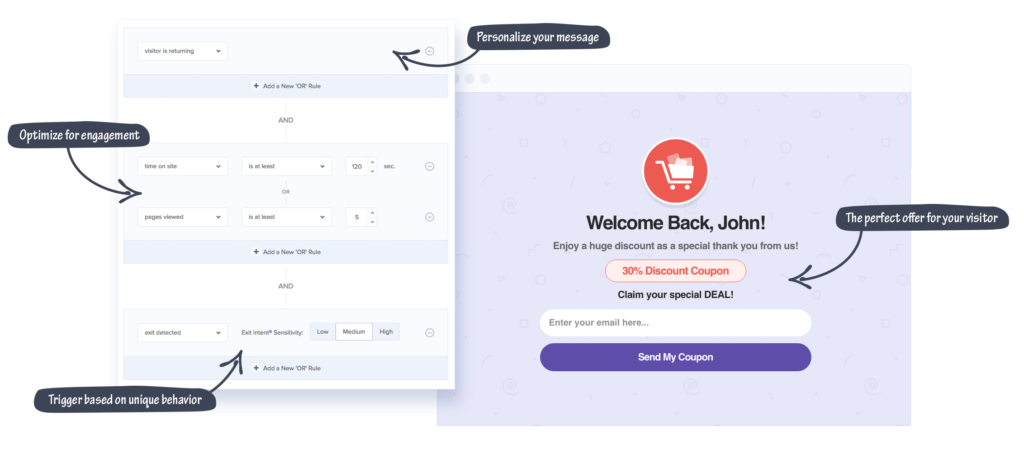
Generating more leads is typically the most important part of the lead generation process. One effective way to do get more leads is by using form and pop-up creators to collect leads. These tools provide:
- Streamlined and convenient form filling for visitors on a landing page or
- The capability to gather information without redirecting from the page
- The establishment of credibility and trust with customers
This improves website visitors’ experience leading to increased conversion rates.
Lead capture tools often come with features like targeting specific audience segments, triggering pop-ups based on user behavior, and integrating seamlessly with email marketing platforms and CRMs.
This integration helps in nurturing these leads through personalized follow-ups.
Top Lead Capture software include:
Leveraging Social Selling with LinkedIn Sales Navigator
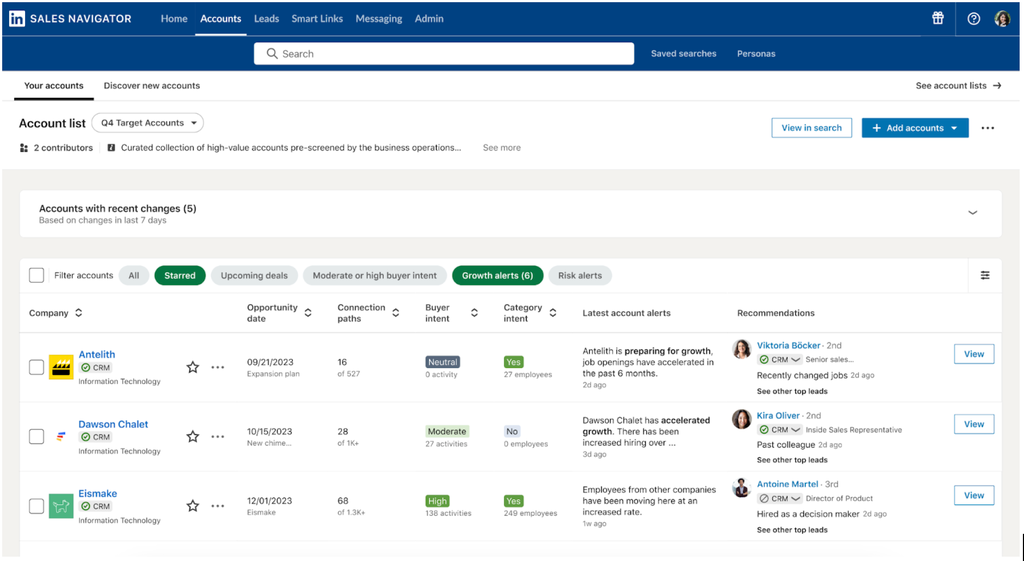
LinkedIn Sales Navigator is an ideal sales tool for direct outreach to prospective customers.
It facilitates identifying and targeting new leads through specific criteria such as location, industry, role, and more.
Moreover, it enables the sending of InMail and OpenLink messages to prospects.
High-achieving sales professionals employ LinkedIn Sales Navigator to access accurate data essential for social selling.
This involves tactics such as:
- Utilizing advanced search functionalities to identify potential leads
- Employing personalized InMail to interact with prospects
- Staying updated on organizational changes within target companies
Enriching Contact Data for Personalized Messaging
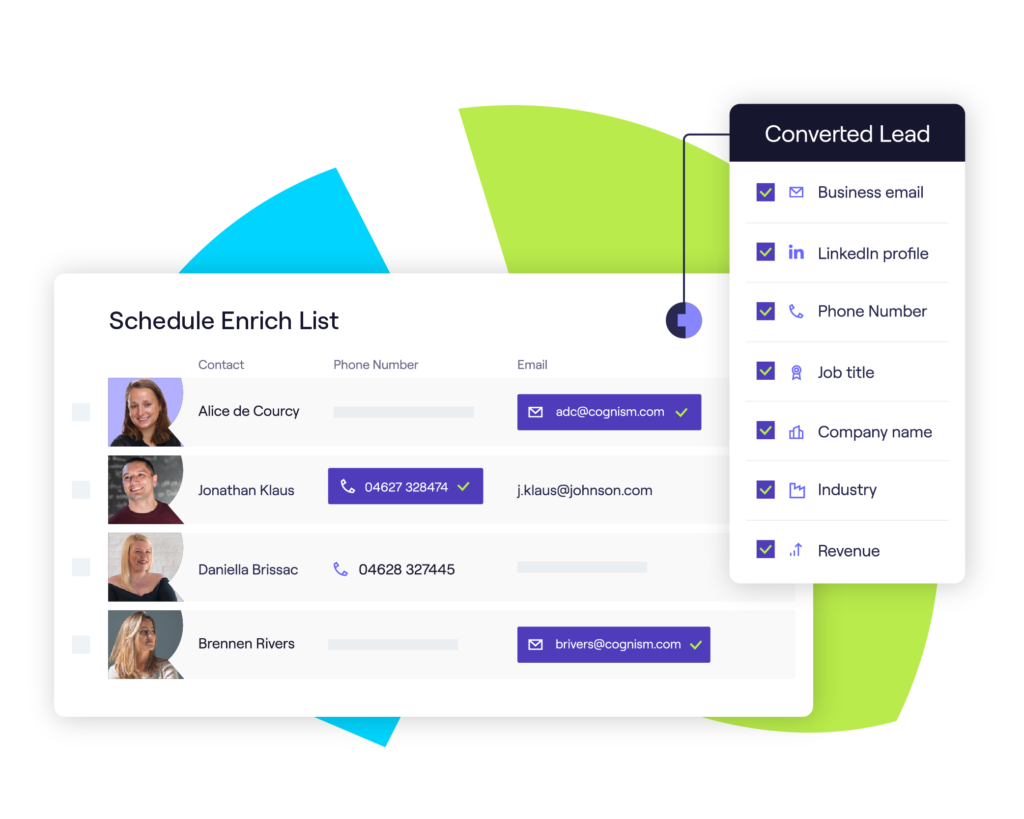
For Sales, accurate data can go a long way. The more precise your targeting, the higher your chances of converting leads.
Enriching contact data enhances precision targeting by:
- Facilitating more precise segmentation of your ICP
- Offering Sales reps insights about each prospect
- Enabling more personalized targeting of offers and content.
Enriched contact data refreshes stale records, fills in missing data gaps, and ensures teams work with fresh, accurate, and compliant data.
It allows for sending targeted messages to specific contacts at optimal times, facilitates more customized outreach through data segmentation, and enables outbound tactics like cold calls to result in sales leads.
Top B2B Data Enrichment & Sales Intelligence tools include:
Scaling Up Sales Qualified Leads With Outbound Lead Gen Services
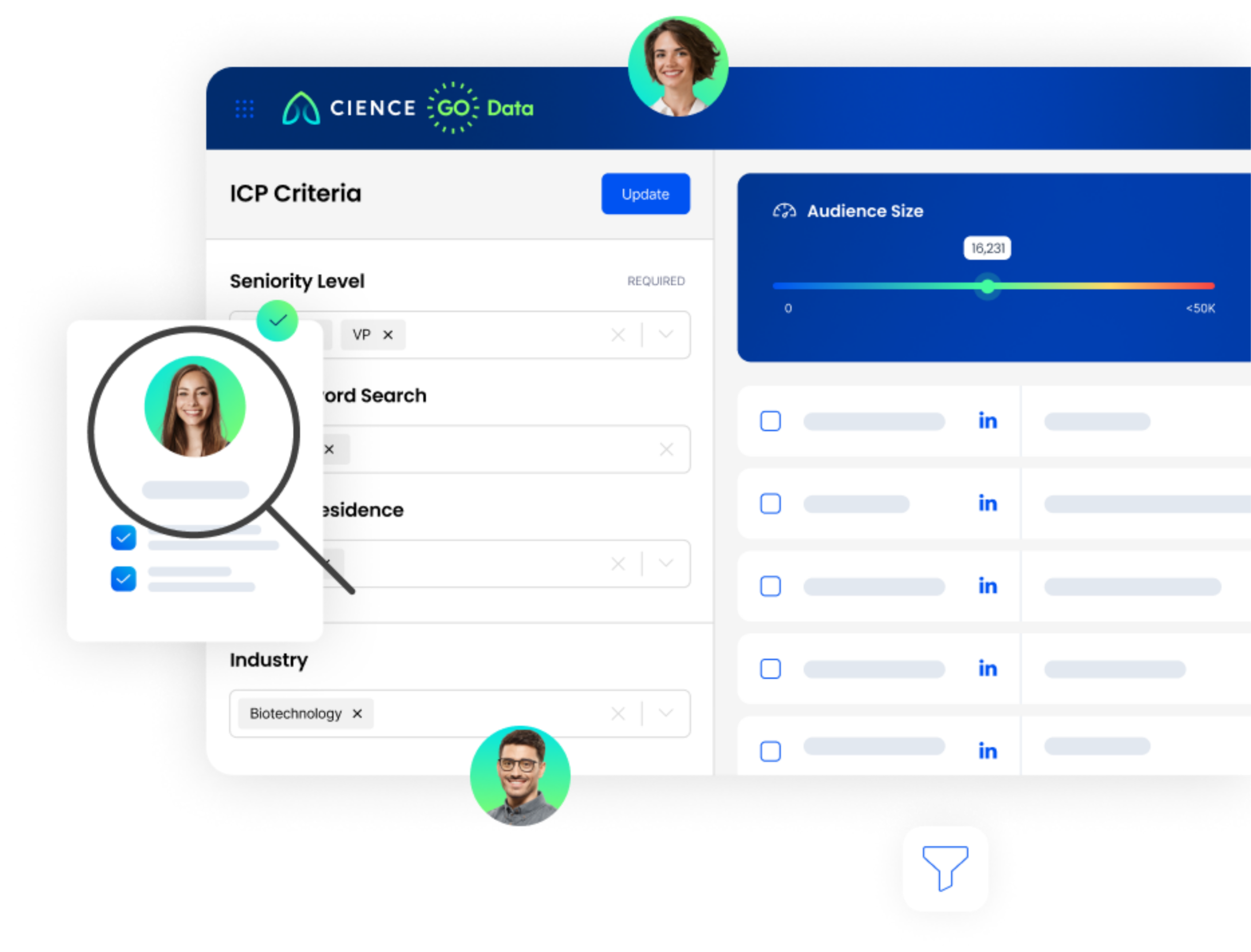
With the basics established, the next step is to scale. B2B lead generation services can help you do just that.
They specialize in actively identifying and engaging potential customers through methods like email, phone calls, and social media outreach.
Outbound B2B lead generation services can contribute to the expansion of your business by:
- Syndicating your content as a lead generation tool
- Customizing outreach
- Actively engaging with potential customers who may not have knowledge of your offerings
This proactive strategy aids in effectively delivering your message and promoting your products or services.
Top Outbound Lead Generation Service providers include:
Optimizing Content for Capturing Search Leads
Optimizing your SEO strategy is a pivotal step in drawing more leads.
High-quality SEO content is essential for lead generation as it effectively caters to the target audience’s needs and inquiries, guaranteeing that the content resonates with them and achieves high rankings on search engines such as Google.
Recommended strategies for developing SEO-optimized content include:
- Establishing a blog with articles that are optimized for search engines
- Customizing content to meet the specific needs of the target audience
- Ensuring that the content is not only relevant and high-quality but also addresses the audience’s inquiries while aligning with search intents.
Search Engine Optimization software
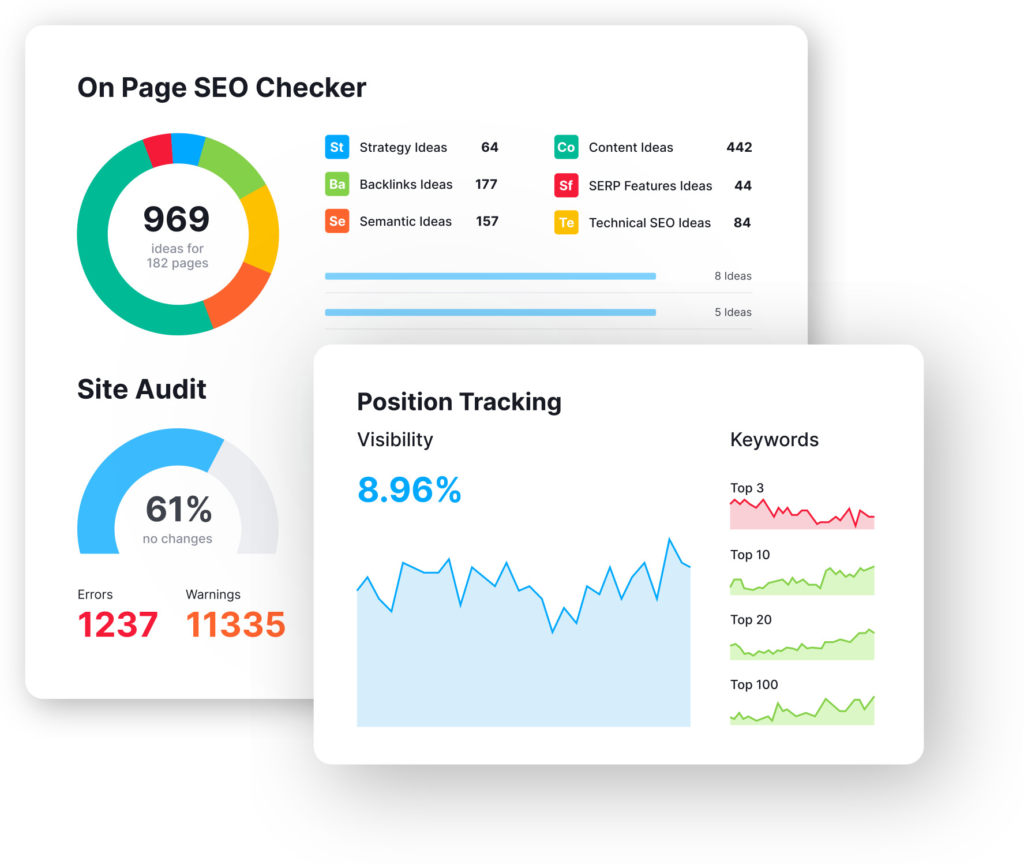
SEO tools are essential in enhancing the visibility and ranking of websites on search engines like Google.
These tools provide a wide range of functionalities, including keyword research to identify terms most relevant to a target audience, on-page SEO analysis to optimize website content and structure, and backlink tracking to monitor and improve the site’s link profile.
They also offer comprehensive analytics to track website performance, identify technical issues, and provide actionable insights for improvement.
By leveraging SEO software, businesses can effectively align their online content with search engine algorithms, driving increased organic traffic, improving search rankings, and ultimately enhancing online visibility and reach.
Top Search Engine Optimization software include:
Engaging Website Visitors with Interactive Content Tools
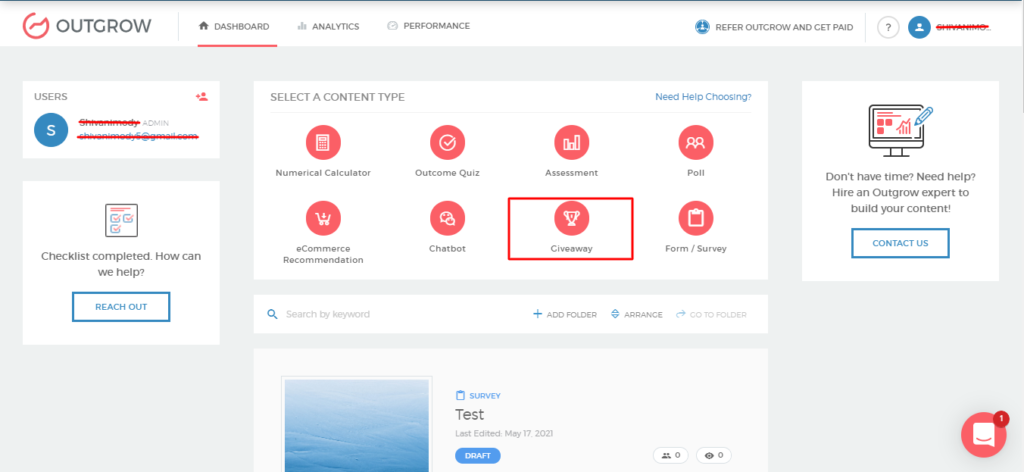
Attracting website visitors is vital for effective lead generation.
Interactive content tools play a crucial role in engaging visitors by enabling them to respond to questions, make decisions, and navigate through scenarios, thereby transforming passive visitors into active participants and fostering a more impactful experience.
These tools not only enhance engagement but also play a crucial role in lead generation and nurturing by directly capturing leads through the content, enabling businesses to effectively manage and follow up with them.
Top Interactive Content Tools include:
Decoding the Data: Website Analytics Tools for Lead Generation
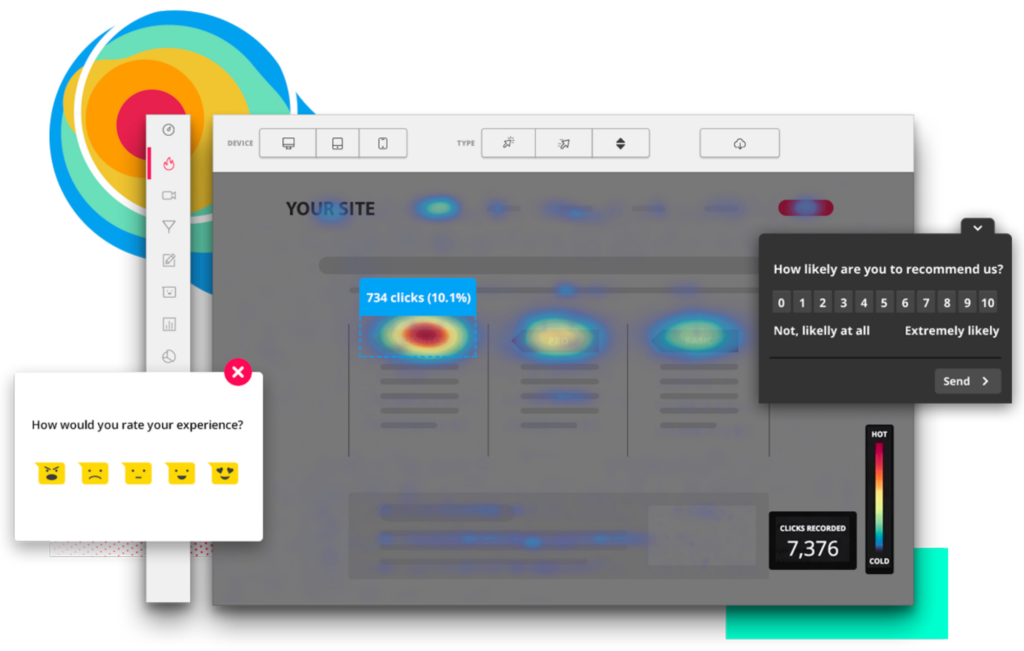
Interpreting the data underlying your lead generation efforts is key to success.
One of the most important areas to understand is how your website is performing as a lead generation tool.
Website Analytics Software provides crucial insights into the performance and user behavior on a website.
It tracks and analyzes a wide range of data, including page views, user sessions, bounce rates, and traffic sources, offering a comprehensive understanding of how visitors interact with a site.
This software helps in identifying popular content, understanding user navigation patterns, and detecting areas that need improvement.
By leveraging the data collected, businesses can make informed decisions to optimize their website’s user experience, enhance engagement, and increase conversions.
Website analytics software can help you generate leads by:
- Enhancing User Experience: Understanding how users interact with the site to make improvements.
- Driving Data-Backed Decisions: Making informed adjustments based on actual user data.
- Improving SEO and Content Strategy: Identifying what content performs best and optimizing for search engines.
- Increasing Conversion Rates: Understanding user behavior to enhance the effectiveness of calls-to-action and other conversion elements.
- Tracking Marketing Performance: Measuring the effectiveness of different marketing strategies and channels.
Top Website Analytics Software include:
Customizing Experiences with Personalization Engines
Tailoring user experiences has the potential to substantially enhance your lead generation endeavors. Personalization engines are sophisticated software tools designed to:
- Create customized user experiences
- Assist marketers in identifying, delivering, and evaluating the most effective experience for each customer.
Personalized user experiences are essential in lead generation because they enable the delivery of messages that are specifically relevant and valuable to leads, helping cut through the noise.
This approach builds trust, improves lead quality, and enhances customer experiences.
Tailored messaging connects with leads on a personal level, increasing the likelihood of generating high-quality leads and fostering engagement.
Content Experience Platforms
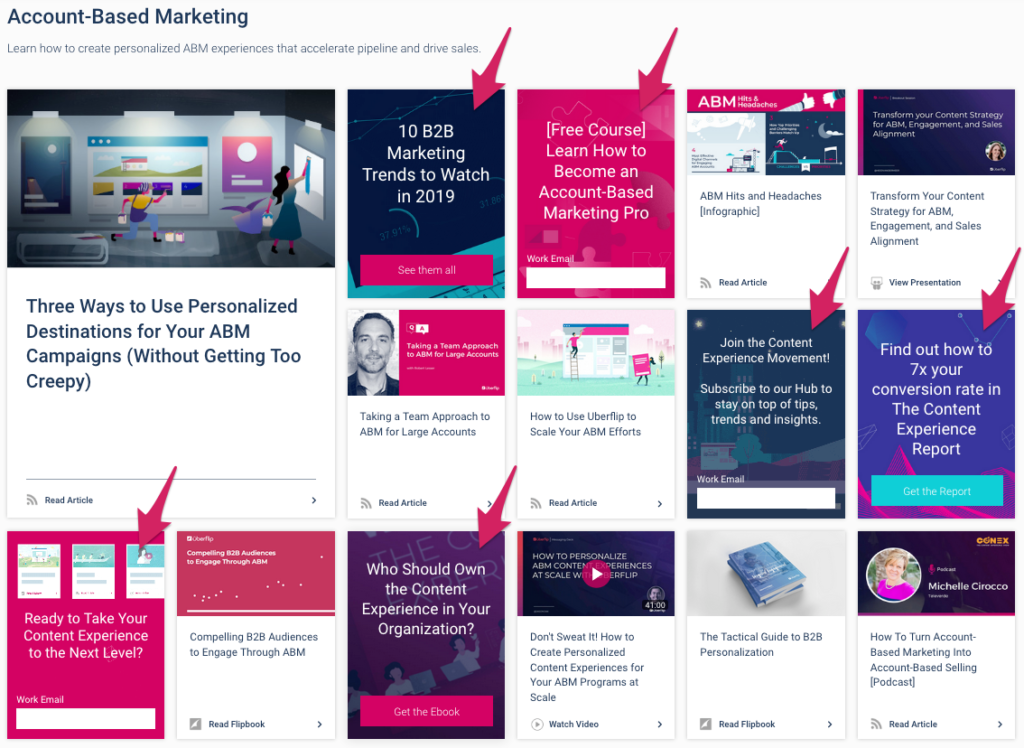
Content Experience Platforms are designed to help create, manage, and optimize personalized content experiences across various digital channels.
These platforms go beyond traditional content management by focusing on how content is structured, presented, and interacted with by audiences.
They integrate tools for content creation, curation, and analytics, allowing businesses to deliver relevant and engaging content tailored to individual user preferences and behaviors.
This approach ensures a cohesive and interactive user journey, enhancing engagement and deepening customer relationships.
Top Content Experience Platforms include:
Website personalization tools
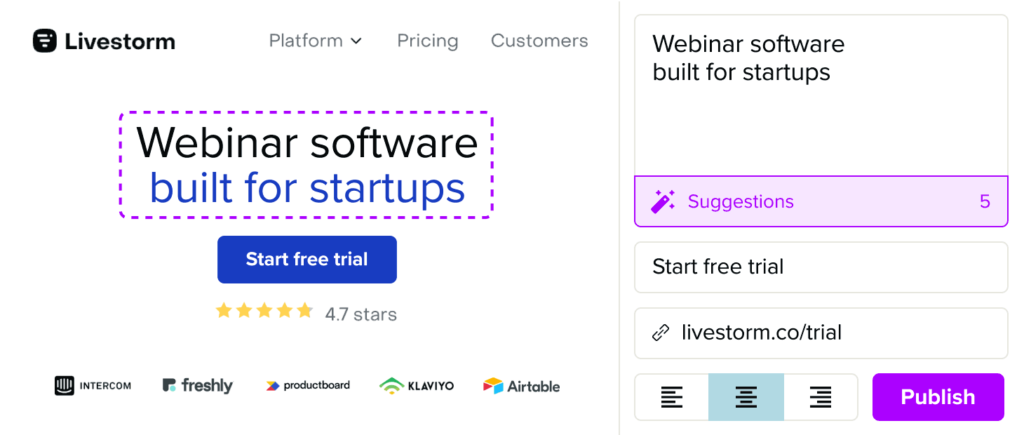
Website personalization tools are designed to tailor a website’s content and user experience to individual visitors.
These tools leverage data such as user behavior, demographics, location, and browsing history to dynamically present customized content, messages, and offers.
The goal is to create a more engaging and relevant experience for each visitor, increasing the likelihood of conversion and customer loyalty.
By using website personalization tools, businesses can transform their websites from static one-size-fits-all platforms into dynamic, responsive environments that resonate more effectively with their diverse audience, ultimately enhancing user engagement and boosting overall business performance.
Top website personalization tools include:
Optimizing Digital Marketing with A/B Testing Tools
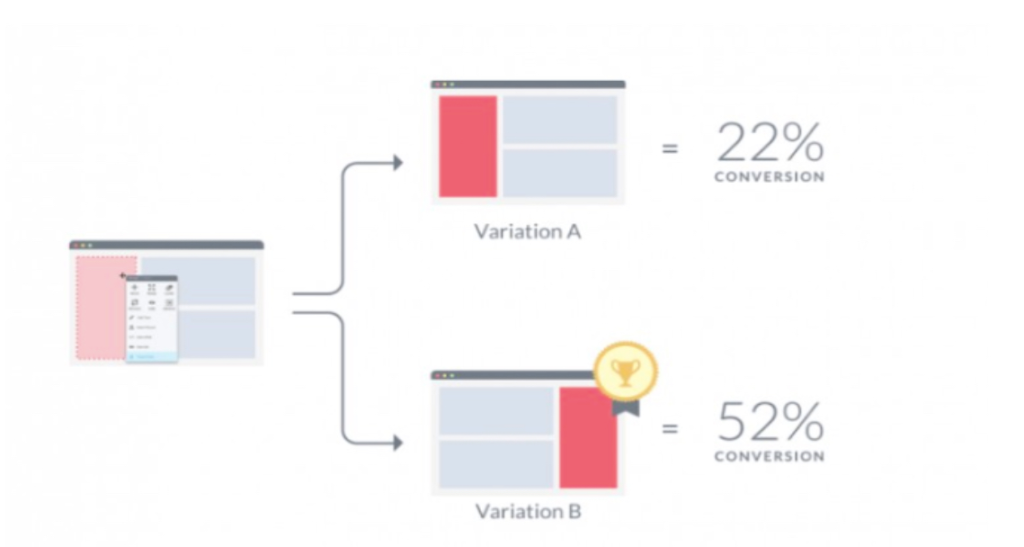
A/B Testing Tools allow businesses to compare two versions of a webpage or app against each other to determine which one performs better.
These tools work by showing variant A to one set of users and variant B to another, then measuring the performance based on specific metrics like conversion rate, click-through rate, or engagement level.
This empirical approach helps in making data-driven decisions, reducing guesswork in understanding user preferences and behaviors.
A/B Testing Tools are invaluable for optimizing website design, content, and user experience, as well as for improving the effectiveness of marketing campaigns and strategies.
Top A/B Testing Tools include:
Beyond Marketing Qualified Leads With Account-Based Marketing
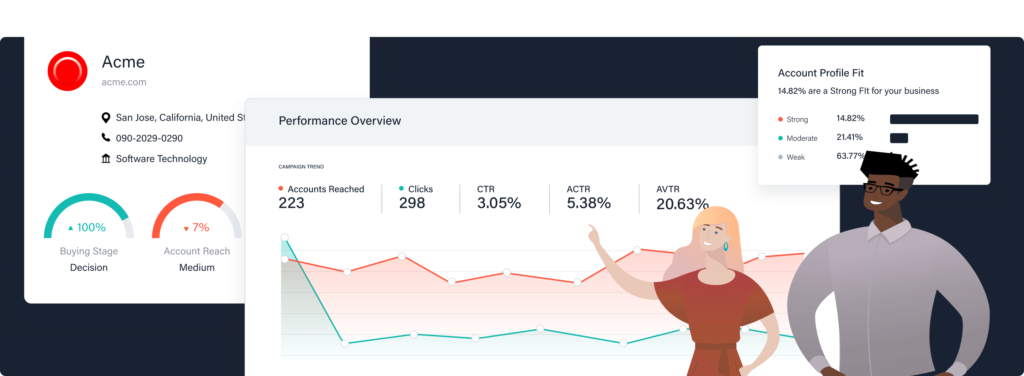
Circling back to 2024 prediction at the top of the article by Jon Miller that the traditional lead-focused playbook needs an update, account-based marketing has been one of solution’s at the forefront of change.
Account-Based Marketing (ABM) is a strategic approach to business marketing in which an organization considers and communicates with individual prospect or customer accounts as markets of one.
ABM software helps in personalizing marketing efforts to targeted accounts, ensuring that the marketing messages and content are highly relevant to each specific account.
This type of software typically includes features for account identification, segmentation, campaign management, and analytics, allowing businesses to effectively tailor their strategies and track the performance of their ABM campaigns.
By focusing on specific high-value accounts, ABM software aids businesses in aligning marketing and sales efforts, thus improving overall engagement and conversion rates.
Top ABM platforms include:
Essential Features of Top Lead Gen Software
The essential features of top lead generation software vary significantly based on specific needs and use cases, underlining the importance of choosing tools that align closely with your business objectives and strategies.
For businesses focusing on digital marketing, features like robust email marketing capabilities, social media integration, and landing page builders are crucial for capturing leads online.
In contrast, companies with a direct sales approach might prioritize CRM integration and pipeline management features to effectively track and nurture leads through the sales process.
For those dealing with large volumes of data, advanced analytics and segmentation tools are key to understanding and targeting their audience effectively.
Meanwhile, businesses emphasizing personalized customer experiences would benefit from AI-driven insights and automated personalization features.
Ultimately, the most valuable features of lead gen software depend on how they align with and support the specific lead generation and nurturing strategies of a business.
Summary
Lead generation in 2024 will continue to be a multi-channel challenge requiring the right combination of people, process, and technology.
From identifying prospects with visitor tracking software to increasing lead capture with form and pop-up creators, and from optimizing email campaigns with A/B testing tools to decoding data with analytics tools, the journey of lead generation is a complex and occasionally rewarding process.
With the right setup, businesses can boost their sales pipeline and drive business growth.
Frequently Asked Questions
What are lead generation tools?
Lead generation tools are software applications or platforms designed to help businesses identify and capture potential customers, streamlining the process of attracting, qualifying, and converting leads into sales opportunities.
Different lead generation software suit different needs, like to get more leads or to qualify sales leads.
What is the best platform for generating leads?
The best platform for generating leads will vary depending on multiple factors like industry, company size, price point, etc.
In general, the best platforms for generating leads include: HubSpot, ActiveCampaign, and Keap for CRM and marketing automation, Unbounce, Instapages, and Leadpages for building landing pages, Intercom, Drift and Ada for chatting with leads, and Airmeet, RingCentral Events, and Livestorm for hosting webinars and events, among other marketing tools.
Each of the best lead generation tools has its own strengths depending on your specific needs.
What are the 4 Ls of lead gen?
The 4 L’s of a lead generation strategy are lead capture, landing pages, lead magnets, and lead scoring, and they form a comprehensive lead generation marketing strategy.
Keep these in mind when evaluating any lead generation tool, and try incorporating these into your tactics for an effective approach.
Which are the 4 steps of the lead generation process?
The four steps of the lead generation are identifying the target market, creating attractive offers, generating leads, and nurturing leads.
What is the B2B lead generation?
B2B lead generation involves identifying potential customers for your product or service and persuading them to make a purchase.
It is a crucial function for B2B marketing and sales teams.
In B2B lead generation for companies with a complex sales process, there’s a need to capture leads and convert them into qualified leads.
The best lead generation tools not only generate leads but also pipeline and revenue.
Author
-

I'm the Founder and Editor-In-Chief of B2B SaaS Reviews and the Director of Demand Generation at PartnerStack, the leading platform for partner management and affiliate marketing in B2B SaaS. My experience spans several notable B2B SaaS companies, including Influitive (Advocate Marketing), LevelJump (Sales Enablement, acquired by Salesforce), and Eloqua (Marketing Automation, acquired by Oracle). I hold a Bachelor of Commerce in Marketing Management from Toronto Metropolitan University and a Master of International Business from Queen's University, with academic exchanges at Copenhagen Business School and Bocconi University.

